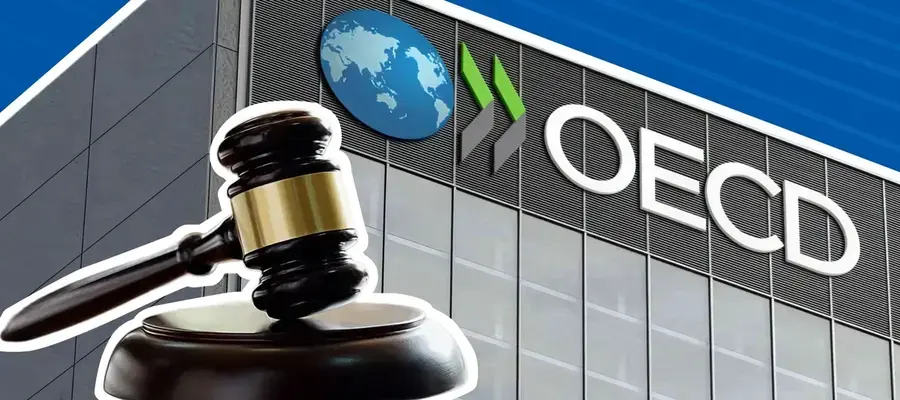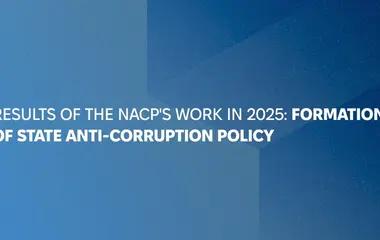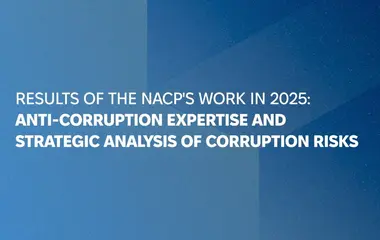According to the assessment by the Organisation for Economic Co-operation and Development (OECD) as part of the fifth round of monitoring under the Istanbul Anti-Corruption Action Plan, Ukraine received a score of 57.4 out of 100 in the area of “Judicial Independence,” which is considered a high level of compliance with OECD standards.
The monitoring team noted that during the evaluation period, Ukraine developed the institutional and legal framework to restore suspended processes regarding judicial careers and disciplinary procedures.
The report states that Ukraine largely meets the criteria for the procedures of competitive selection and appointment of judges. Experts positively noted that Ukraine has improved the legal framework for selecting judges, and the appointment process has been resumed with the involvement of newly formed compositions of judicial governance bodies (High Council of Justice and High Qualification Commission of Judges), established through a transparent competitive procedure with the participation of international experts.
It was confirmed that judges in Ukraine are selected through competitive procedures with clearly defined requirements and publicly announced vacancies. Among the achievements are the Unified Indicators for assessing the integrity and professional ethics of judges (or judicial candidates), approved at the end of 2024, which are applied by the High Council of Justice, the High Qualification Commission of Judges, and the Ethics Council, allowing for the unification of approaches across these bodies. At the same time, challenges remain in effectively implementing the Unified Indicators in practice and filling vacant judicial positions.
It was positively noted that the level of judicial remuneration is set by law and does not include any discretionary payments.
One of the key developments during the evaluation period was the launch of the new disciplinary proceedings system and the start of operations of the Disciplinary Inspectors Service. This ensured the separation of the conduct of disciplinary proceedings from decision-making: inspectors of the Secretariat of the High Council of Justice conduct the review of disciplinary complaints, while the disciplinary chambers of the High Council of Justice make the decisions. It was also noted that the High Council of Justice established the prioritization of disciplinary cases, reviewing them in chronological order, with priority given to the most serious cases and cases of significant public interest.
Legislation secures all main stages of the procedure for judicial disciplinary responsibility and the grounds for it, and Ukraine meets the criteria for ensuring procedural guarantees for proper complaint consideration (the right to be heard, to provide evidence, the right to defense and appeal). Among the challenges remains the need to improve the grounds for initiating disciplinary liability.
The main directions for further development of the judicial system were outlined as follows: completion of the qualification assessment procedures for judges appointed before 2016; filling vacant judicial positions through competitive procedures; and improvement of judicial disciplinary responsibility.
It should be recalled that the evaluation covered Ukraine’s anti-corruption system in nine key areas: “Anti-Corruption Policy,” “Conflict of Interest and Asset Disclosure,” “Whistleblower Protection,” “Integrity in Business,” “Transparency of Public Procurement,” “Judicial Independence,” “Prosecutorial Independence,” “Specialized Anti-Corruption Bodies,” and “Liability for Corruption Offenses.”
A distinctive feature of the fifth round was the application of performance indicators defined in the Monitoring Methodology. To assess the achievement of indicators, compliance criteria are used, which are based on international standards and best practices, and also include recommendations provided by the OECD in the previous round of monitoring. This evaluation system ensures the objectivity, consistency, and transparency of conclusions.
Information on Ukraine’s progress in anti-corruption policy, conflict of interest and asset disclosure, whistleblower protection, integrity in business, and transparency of public procurement is available on the NACP website.
The full text of the report on the results of the fifth round of monitoring under the Istanbul Anti-Corruption Action Plan is available via the link.
Reference. The OECD Anti-Corruption Network (ACN) is a regional program operating under the OECD Working Group on Bribery, established in 1998. Its mission is to support member countries in preventing and combating corruption through country analyses, networks of practitioners, and individual technical assistance.
The Istanbul Anti-Corruption Action Plan is a regional expert assessment program launched in 2003 under the OECD ACN, which supports reforms by analyzing and monitoring the implementation of recommendations that promote the best international standards.
The Istanbul Anti-Corruption Action Plan involves reviews of ten Anti-Corruption Network countries: Ukraine, Armenia, Georgia, Kazakhstan, Kyrgyzstan, Moldova, Mongolia, Tajikistan, Azerbaijan, and Uzbekistan. Ukraine joined the program in 2003 and has undergone five rounds of monitoring. All previous reports are available on the ACN website.
In March 2024, the OECD published the Report on Anti-Corruption Reforms in Ukraine based on the fifth round of monitoring under the Istanbul Anti-Corruption Action Plan (during 2023, Ukraine underwent a shortened review in 5 out of 9 areas: “Anti-Corruption Policy,” “Asset Disclosure,” “Judicial Independence,” “Specialized Anti-Corruption Bodies,” and “Liability for Corruption Offenses”). The report confirmed that Ukraine demonstrated significant progress in various areas of anti-corruption and integrity-building.









